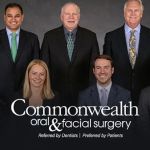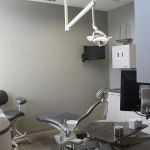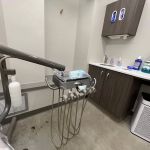How Does Mouthwash Contribute to Oral Hygiene?
Mouthwash is a staple in many American households, often viewed as the final step in oral care routines. While brushing and flossing are traditionally emphasized, the role of mouthwash in maintaining optimal oral hygiene is gaining recognition. This article delves into how mouthwash contributes to oral hygiene, looking beyond its refreshing sensations to explore its significant health benefits. At Dentistry Toothtruth, we aim to provide insights into optimal dental practices that can benefit our readers across the United States.
Removing Plaque and Preventing Tartar Buildup
Mouthwash plays a pivotal role in reducing plaque and preventing tartar buildup, two critical factors in maintaining a healthy mouth. Plaque is a sticky, colorless film of bacteria that forms on teeth. If not removed, it can harden into tartar, which brushing alone cannot eliminate. Antiseptic mouthwashes, typically containing chlorhexidine or essential oils, are designed to kill bacteria that cause plaque. Studies show that regular use of mouthwash can reduce plaque formation by up to 50%, enhancing the effectiveness of brushing and flossing. This reduction in plaque not only helps in maintaining cleaner teeth but also aids in preventing gum diseases, making mouthwash an essential component of a comprehensive oral hygiene routine.
Fighting Bad Breath
Halitosis, commonly known as bad breath, can be both socially embarrassing and indicate underlying health issues. Mouthwash is particularly effective in combating bad breath by neutralizing odor-causing bacteria. Most mouthwashes contain active ingredients like cetylpyridinium chloride or zinc compounds, which bind to sulfur compounds responsible for foul odors. While chewing gum or mints only mask bad breath temporarily, mouthwash provides a deeper cleansing effect. A clinical trial in the Journal of Clinical Dentistry reported a significant reduction in sulfur compounds when participants used mouthwash twice daily. Therefore, incorporating mouthwash into your oral care regimen can not only freshen your breath but also improve overall oral health.
Protecting Against Cavities
Most people are aware that fluoride in toothpaste helps protect against cavities. However, fluoride mouthwash can further fortify tooth enamel, providing an additional layer of defense against decay. Mouthwashes with sodium fluoride are particularly beneficial for individuals with higher risks of cavities, like those with braces or dental restorations. These mouthwashes help remineralize tooth enamel, making it more resistant to acid attacks from bacteria. The American Dental Association (ADA) recommends the use of fluoride rinse solutions, stating studies that indicate a 26% average reduction in cavities among frequent users. Thus, mouthwash is not just a superficial cleaner; it plays a vital part in an integrated oral care strategy.
Enhancing Overall Oral Health
Oral health impacts overall health, as conditions like gum disease have been linked to systemic issues such as heart disease and diabetes. Mouthwash contributes to overall health by reaching areas brushing and flossing might miss, providing a full-mouth clean. Antimicrobial mouthwashes reduce gingivitis and periodontal diseases, both precursors to more serious health complications. At Dentistry Toothtruth, we emphasize the importance of a holistic approach to health, and using mouthwash is one step that bridges the gap between oral and general health.
Conclusion and Action Steps
In summary, mouthwash is an invaluable addition to your oral hygiene regimen. It aids in removing plaque, fighting bad breath, preventing cavities, and enhancing overall oral health—all crucial in maintaining a healthy lifestyle. For those looking to integrate mouthwash effectively, it is recommended to choose a mouthwash suitable for your specific needs and to use it as directed, typically after brushing and flossing. For personal recommendations, visiting a dental care provider like Dentistry Toothtruth can provide tailored advice. By incorporating mouthwash, individuals can significantly improve their oral hygiene, leading to better overall health outcomes.







 Commonwealth Oral & Facial Surgery Brandermill4.0 (57 review)
Commonwealth Oral & Facial Surgery Brandermill4.0 (57 review) Harbor Cove Dental5.0 (191 review)
Harbor Cove Dental5.0 (191 review) Gentle Dental Moreno Valley4.0 (147 review)
Gentle Dental Moreno Valley4.0 (147 review) Desert Sun Pediatric Dentistry5.0 (716 review)
Desert Sun Pediatric Dentistry5.0 (716 review) Mini Dental Implant Centers of America - Springfield, MO - Dr. Thomas Baggett, III4.0 (17 review)
Mini Dental Implant Centers of America - Springfield, MO - Dr. Thomas Baggett, III4.0 (17 review) Dentistry for Midtown Atlanta4.0 (404 review)
Dentistry for Midtown Atlanta4.0 (404 review) The Importance of Oral Health Education During Pregnancy for a Healthy Pregnancy
The Importance of Oral Health Education During Pregnancy for a Healthy Pregnancy Best Tips for Brushing Your Teeth Properly for Healthy Gums: Essential Techniques for Oral Health
Best Tips for Brushing Your Teeth Properly for Healthy Gums: Essential Techniques for Oral Health Why Skipping Dental Checkups Can Lead to Bigger Oral Health Problems
Why Skipping Dental Checkups Can Lead to Bigger Oral Health Problems Advantages of Porcelain Dental Restorations
Advantages of Porcelain Dental Restorations How Can Diabetes Cause Tooth and Gum Problems? Preventing and Managing Oral Health Issues
How Can Diabetes Cause Tooth and Gum Problems? Preventing and Managing Oral Health Issues Healthy Habits for Promoting Good Oral Health and Hygiene: Tips for a Healthy Smile
Healthy Habits for Promoting Good Oral Health and Hygiene: Tips for a Healthy Smile